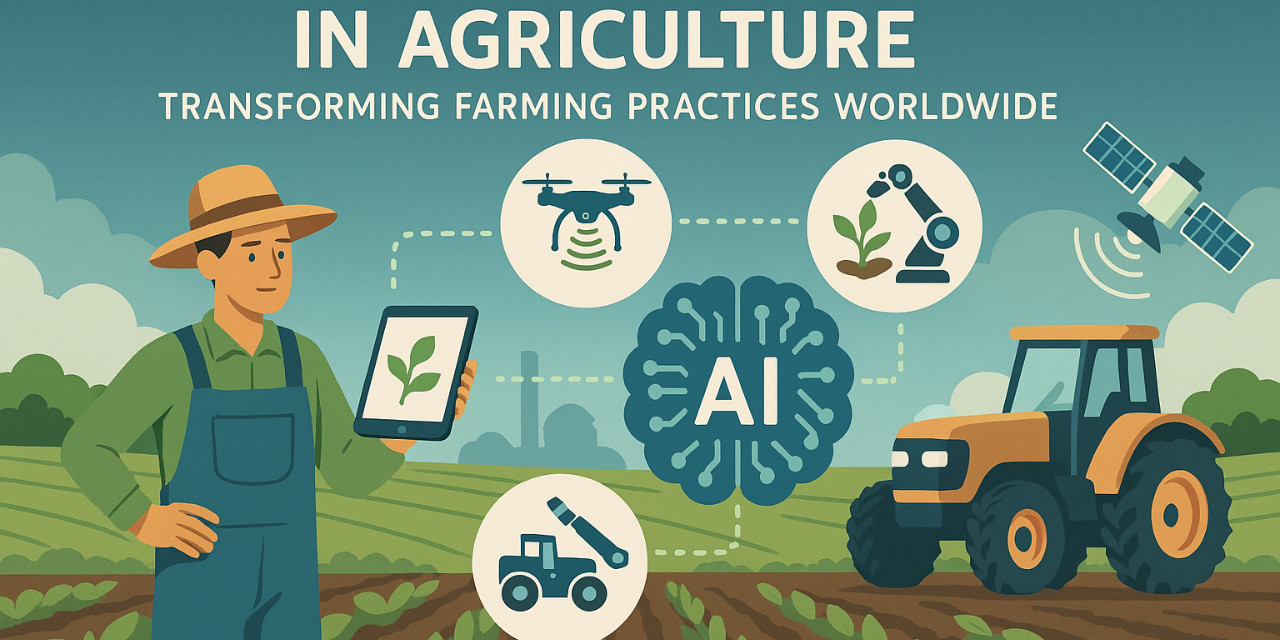
Artificial intelligence (AI) is rapidly reshaping agricultural landscapes across the globe, offering innovative solutions to boost productivity, reduce costs, and promote sustainable practices. In an industry facing growing challenges from climate change to resource scarcity, AI emerges as a crucial tool for 21st-century farmers.
From small-scale operations to industrial farms, AI technologies are being deployed to optimize daily operations. Computer vision systems can detect crop diseases weeks before they become visible to the human eye, while predictive algorithms help farmers make data-driven decisions about resource allocation. These innovations build upon other revolutionary agtech innovations already transforming the sector.
Drones equipped with multispectral cameras and advanced sensors fly over fields, collecting data that AI algorithms then analyze. These systems can identify areas of water stress, nutrient deficiencies, or pest infestations at early stages, allowing for timely and precise interventions similar to how drones optimize irrigation in advanced farming operations.
AI-driven precision agriculture goes beyond simple data collection. Predictive models analyze historical information alongside real-time climate data to generate specific recommendations on when to plant, irrigate, or harvest.
In vineyards around the world, AI helps predict optimal harvest times based on multiple variables. These systems integrate seamlessly with ERP management solutions that handle all aspects of agricultural business operations, creating a comprehensive digital ecosystem for modern farmers.
The convergence of AI and robotics is giving rise to autonomous machines capable of performing tasks like seeding, weeding, and harvesting with minimal human intervention. These robots use computer vision algorithms to navigate fields and make real-time decisions.
In large-scale operations, robotic harvesters equipped with AI can identify and pick only ripe produce, significantly improving quality and reducing waste. This technology is particularly valuable in regions facing labor shortages and complements sustainable farming practices by minimizing soil compaction from heavy machinery.
While AI promises tremendous benefits, implementation faces significant challenges. Internet access remains limited in many rural areas, hampering the adoption of technologies that require constant connectivity. Additionally, the initial investment can be substantial, though the long-term return on investment often justifies the cost.
Farmers concerned about these barriers might consider starting with simpler solutions before fully committing to comprehensive smart agriculture systems that integrate multiple technologies.
As AI technologies continue to evolve, we can expect even more sophisticated applications in agriculture. From gene editing guided by machine learning to fully autonomous farms, the possibilities are vast and exciting.
By embracing AI and other digital technologies, farmers can not only improve their own operations but also contribute to addressing global challenges like food security and climate change. The farms of tomorrow will be smarter, more efficient, and more sustainable, powered by the incredible potential of artificial intelligence.
Are you ready to explore how AI might transform your agricultural operations? The future of farming is here, and it's more intelligent than ever before.
Find Agriflow in other countries of Africa